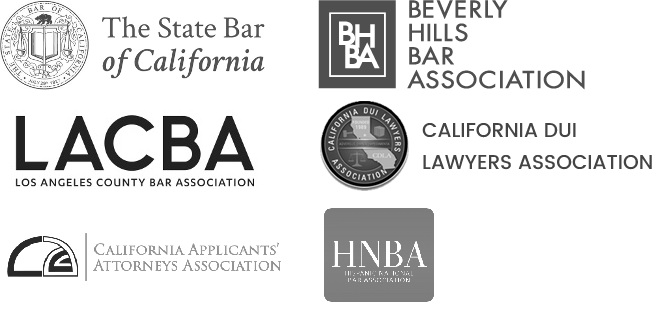Denied or Delayed Workers’ Comp Claims
Learn About Denied or Delayed Workers’ Comp Claims in California
Injured at work? Claim denied or delayed?
Getting injured at work can be stressful enough without having to worry about your workers’ compensation claim being denied or delayed. Unfortunately, many legitimate claims in California face these problems every day. Workers often find themselves confused and worried when they receive a denial letter or when their claim sits without action for weeks or months.
If your California workers’ compensation claim has been denied or delayed, you have legal rights and options to fight for the benefits you deserve. The process can feel overwhelming, but understanding why these issues happen and knowing what steps to take can make a big difference in your case.
At LG Law Center in Ontario, California, attorney Luis E. Gonzalez helps workers navigate these challenging situations. Whether dealing with outright denials or frustrating delays, there are proven strategies to get claims back on track and secure the medical care and wage replacement benefits that injured workers need.
If your Workers’ Comp claim was denied or delayed in California, contact LG Law Center today for a free case review!
Understanding Workers’ Compensation Denials in California
Workers’ compensation denials happen for specific reasons, from missed deadlines to insufficient medical evidence. Insurance companies use strict evaluation processes to review claims, making proper documentation crucial for approval.
Most Common Reasons for Claim Denials
Late reporting stands as the top reason for claim denials in California. Workers have only 30 days to report their injury to their employer. Missing this deadline often results in automatic denial.
Insufficient medical evidence creates major problems for claims. Insurance companies require clear proof that the injury happened at work. Without detailed medical records linking the injury to workplace activities, claims get rejected.
Pre-existing conditions complicate many cases. Insurance companies argue that current symptoms stem from old injuries rather than workplace incidents. They use this reason to deny coverage for legitimate work-related injuries.
Disputed work-relatedness affects claims where the connection to work seems unclear. Insurance companies question whether the injury truly occurred during work hours or job duties.
Missing paperwork leads to denials when workers fail to complete required forms properly. The DWC-1 claim form must be filled out completely and submitted on time.
How Insurance Companies Evaluate Claims
Insurance companies assign claims adjusters to investigate each case. These adjusters review medical records, interview witnesses, and examine workplace conditions. They look for any reason to question the claim’s validity.
Medical reviews involve insurance doctors examining the injured worker’s records. These doctors often work for the insurance company and may disagree with treating physicians about injury severity or work-relatedness.
Surveillance sometimes occurs when insurance companies suspect fraud. They may hire investigators to watch injured workers and document their daily activities.
The insurance company’s main goal is controlling costs. They save money by denying claims, even legitimate ones. About 12% of initially denied claims eventually get approved after appeals.
Importance of Documentation
Medical records form the foundation of any workers’ compensation claim. Every doctor visit, treatment, and diagnosis should be documented. Workers need records showing the injury’s connection to their job.
Incident reports filed with employers create official records of workplace accidents. These reports should describe exactly what happened, when, and where. Detailed incident reports strengthen claims significantly.
Witness statements provide additional support for claims. Coworkers who saw the accident can verify the worker’s account. Written statements carry more weight than verbal accounts.
Photograph evidence of the accident scene, equipment involved, or visible injuries helps build strong cases. Pictures taken immediately after incidents provide powerful proof.
Work history documentation shows the worker’s job duties and physical demands. This information helps prove how specific work activities caused the injury.
Delayed Claims in the California Workers’ Compensation System
Delays in California workers’ compensation claims affect thousands of injured workers each year due to administrative issues, documentation problems, and insurance company disputes. These delays can create serious financial hardship and prevent workers from getting needed medical care.
Typical Causes of Claim Delays
Administrative backlogs at insurance companies cause many claim delays in California. When too many claims come in at once, insurance adjusters cannot process them quickly enough.
Documentation issues create another major source of delays. Missing medical records, incomplete claim forms, or unclear injury reports can stop the process entirely. Workers often need to submit additional paperwork multiple times.
Insurance company disputes over claim validity slow down many cases. Insurers may question whether the injury happened at work or if it relates to a pre-existing condition.
Utilization Review (UR) problems delay medical treatment approvals. When workers need surgery, MRIs, or medications, these requests can get stuck in the review process for weeks.
Complex cases involving multiple injuries or unclear circumstances take longer to investigate. Insurance companies need more time to review evidence and make decisions on complicated claims.
How Delays Affect Injured Workers
Delayed workers’ compensation claims create serious financial problems for injured employees. Workers cannot pay rent, buy groceries, or cover basic expenses when disability payments do not arrive on time.
Medical treatment delays cause the most harm to injured workers. When surgery gets postponed or pain medications are denied, workers suffer longer and may develop worse health problems.
Many workers return to their jobs too early because they cannot afford to wait for benefits. This often makes their injuries worse and creates new safety risks.
Stress and anxiety increase when workers do not know when their claims will be approved. The uncertainty affects their mental health and family relationships.
Workers may need to use credit cards or borrow money to survive during claim delays. This creates debt that can take years to pay off even after benefits start.
Deadlines and Timelines
California law requires insurance companies to accept or deny workers’ compensation claims within 90 days of receiving all necessary information. This deadline protects workers from unreasonable delays.
Penalty payments may apply when insurers delay benefits without good reason. California Labor Code 5814 allows workers to claim up to 25 percent penalties for unreasonable delays in disability benefits and medical coverage.
Emergency medical treatment must be provided immediately regardless of claim status. Workers should not wait for approval to get urgent care for serious injuries.
Self-procured medical treatment may be reimbursed if the insurance company delays necessary care. Workers can seek treatment on their own and request payment later.
Filing deadlines still apply even when claims are delayed. Workers must report injuries within 30 days and file formal claims within one year to protect their rights.
Steps to Take After a Denied or Delayed Workers’ Compensation Claim
When your workers’ compensation claim gets denied or delayed, you need to act quickly to protect your rights. The key steps include carefully reading your denial letter, collecting strong evidence to support your case, and knowing how to handle conversations with insurance adjusters.
Reviewing Your Denial Letter
The denial letter contains important information that workers need to understand. This document explains exactly why the insurance company rejected the claim.
Workers should look for the specific reason listed in the letter. Common reasons include:
- Lack of medical evidence – Not enough proof the injury happened
- Missed deadlines – Filed the claim too late
- Dispute about work connection – Insurance says injury didn’t happen at work
- Pre-existing condition claims – Insurance blames old injuries
The letter also shows important dates. Workers have limited time to appeal the decision. In California, workers usually have 20 days from receiving the denial to request a hearing.
Workers should save all paperwork. They need copies of the denial letter for their appeal. The letter becomes evidence that shows when the denial happened.
Gathering Supporting Evidence
Strong evidence helps workers win their appeals. Workers need to collect documents that prove their injury happened at work and needs treatment.
Medical records are the most important evidence. Workers should get copies of:
- Doctor visit notes
- X-rays and test results
- Treatment plans
- Prescription records
Workplace evidence also matters. This includes:
- Accident reports filed with the employer
- Photos of the accident scene
- Safety violation reports
- Equipment maintenance records
Witness statements can support the worker’s story. Coworkers who saw the accident should write down what happened. These statements need to include dates, times, and specific details.
Workers should organize all evidence in folders. They need copies for themselves and extras for hearings. Digital copies work as backup storage.
Tips for Dealing With Insurance Adjusters
Insurance adjusters work for the insurance company, not the injured worker. Workers need to be careful during all conversations with adjusters.
Workers should never admit fault for their injury. Adjusters may ask questions that try to get workers to blame themselves. Simple answers work best.
Recording conversations helps protect workers. California allows workers to record phone calls if they tell the adjuster first. Workers can say “I’m recording this call for my records.”
Workers should avoid giving recorded statements without legal help. Adjusters often request these statements early in the process. Workers have the right to refuse or ask for time to get advice.
All communication should be in writing when possible. Workers should follow up phone calls with emails that repeat what was discussed. This creates a paper trail of all conversations.
Workers can ask adjusters to explain decisions. If an adjuster denies treatment or benefits, they must give reasons in writing.
Appealing a Denied Workers’ Compensation Claim in California
When your workers’ compensation claim gets denied, you can file an appeal with the Workers’ Compensation Appeals Board. You’ll need to prepare evidence and attend hearings where a judge will decide your case.
Filing an Appeal With the Workers’ Compensation Appeals Board
Workers must file an Application for Adjudication of Claim with the Workers’ Compensation Appeals Board (WCAB) to start the appeal process. This form begins the formal challenge against the insurance company’s denial.
The application must be filed within one year of the injury date or the date the worker knew the injury was work-related. Missing this deadline can prevent workers from getting benefits.
Key information needed for the application includes:
- Worker’s personal information and employer details
- Date and description of the injury
- Medical treatment received
- Reasons why the claim should be approved
The WCAB will assign a case number once they receive the application. Workers can file the form online, by mail, or in person at a WCAB office. There is no fee to file this application.
After filing, the insurance company gets notified and must respond to the appeal. This starts the legal process that can lead to a hearing.
Preparing for Hearings
Strong medical evidence forms the foundation of a successful appeal. Workers should gather all medical records, doctor reports, and treatment notes related to their injury.
Important documents to collect:
- Medical records from all treating doctors
- Work incident reports
- Witness statements from coworkers
- Photos of the accident scene or injury
- Employment records showing work history
Workers should get a detailed report from their doctor explaining how the injury connects to their work duties. This medical opinion often determines whether an appeal succeeds or fails.
Preparing testimony is also crucial. Workers need to clearly explain when, where, and how their injury happened at work. They should practice describing their symptoms and how the injury affects their daily life and work abilities.
Having an attorney helps workers understand complex legal rules and present their case effectively. At LG Law Center, attorney Luis E. Gonzalez helps workers prepare strong appeals and gather the right evidence for their hearings.
Possible Outcomes of an Appeal
The WCAB judge can make several different decisions after reviewing the appeal. The judge might approve the entire claim, approve only part of it, or uphold the original denial.
If the appeal succeeds, workers can receive medical treatment coverage, temporary disability payments, and other benefits. The insurance company must pay for approved medical care and lost wages from the injury.
Common appeal results include:
- Full approval with all benefits restored
- Partial approval for specific injuries or treatments
- Denial upheld with no benefits awarded
- Case sent back for more medical evaluation
When appeals get denied, workers can request reconsideration within 20 days of the decision. They can also take their case to the California Court of Appeal if they believe legal errors occurred.
The appeals process typically takes several months to over a year depending on case complexity. Workers should continue seeking medical treatment during this time and keep detailed records of all expenses and symptoms.
How LG Law Center Helps With Denied or Delayed Claims
LG Law Center provides dedicated support for workers facing denied or delayed workers’ compensation claims in Ontario, California. The firm offers personalized assistance throughout the appeals process and free consultations to evaluate cases.
Personalized Support for Injured Workers
LG Law Center understands that every workers’ compensation case is different. The firm takes time to learn about each worker’s specific situation and injury.
Attorney Luis E. Gonzalez and his team review all claim documents carefully. They look for mistakes or missing information that might have caused the denial.
The law center helps workers gather important medical records and evidence. This includes doctor reports, witness statements, and workplace incident documentation.
Key support services include:
- Document review and organization
- Medical record collection
- Evidence gathering assistance
- Communication with insurance companies
- Claim filing corrections
Workers receive regular updates about their case progress. The team explains legal terms in simple language so clients understand what is happening.
Guidance Through the Appeals Process
When insurance companies deny workers’ compensation claims, LG Law Center helps workers fight back. The appeals process has strict deadlines and complex rules.
The firm handles all paperwork and legal filings for appeals. They make sure everything is submitted on time to protect workers’ rights.
LG Law Center represents workers at hearings and meetings with insurance companies. Attorney Luis E. Gonzalez presents evidence and argues why the claim should be approved.
Appeals process assistance:
- Filing appeals within required deadlines
- Preparing legal documents
- Representing clients at hearings
- Negotiating with insurance companies
- Presenting medical evidence
The team knows common reasons why claims get denied. They address these issues directly in appeals to improve chances of success.
Contact LG Law Center Today For A Free Case Consultation
LG Law Center offers free consultations for workers with denied or delayed claims. This meeting helps workers understand their options without any cost.
During the consultation, the team reviews the denial letter and explains what it means. They discuss the strength of the case and possible next steps.
Workers can ask questions about their rights and the appeals process. The law center explains how long appeals typically take and what to expect.
Free consultation includes:
- Case evaluation
- Denial letter review
- Rights explanation
- Timeline discussion
- No-obligation assessment
The firm operates on a contingency fee basis for workers’ compensation cases. This means workers pay no attorney fees unless they win their case.
Injured workers can schedule their free consultation by contacting LG Law Center today!


Workers’ Compensation Attorney in Ontario, California
If you’ve been injured on the job in Ontario, California, you may be entitled to workers’ compensation benefits to help cover your medical care and lost wages. While the system is designed to protect workers, filing a successful claim can quickly become complicated, especially when insurance companies work hard to minimize payouts. From delayed treatments to denied benefits, many injured workers find themselves struggling to get the support they need.
LG Law Center is committed to protecting the rights of injured employees throughout Ontario and Pomona. Their experienced workers’ compensation attorneys know how to stand up to insurance companies and fight for the full benefits you deserve. Contact them today for a free consultation and let them help you take the next step toward recovery.







